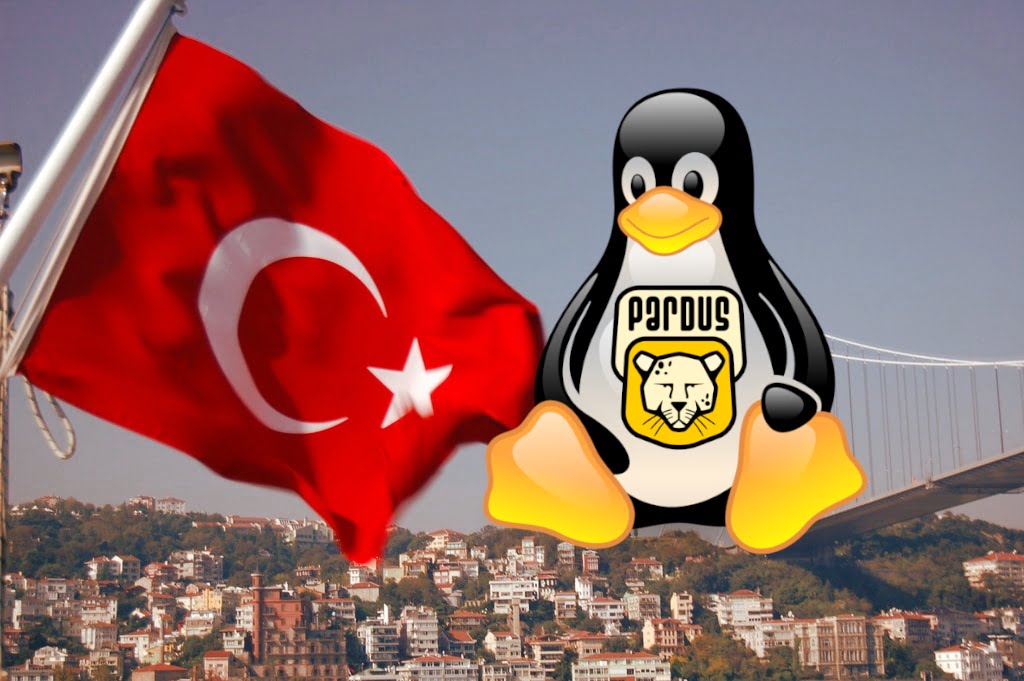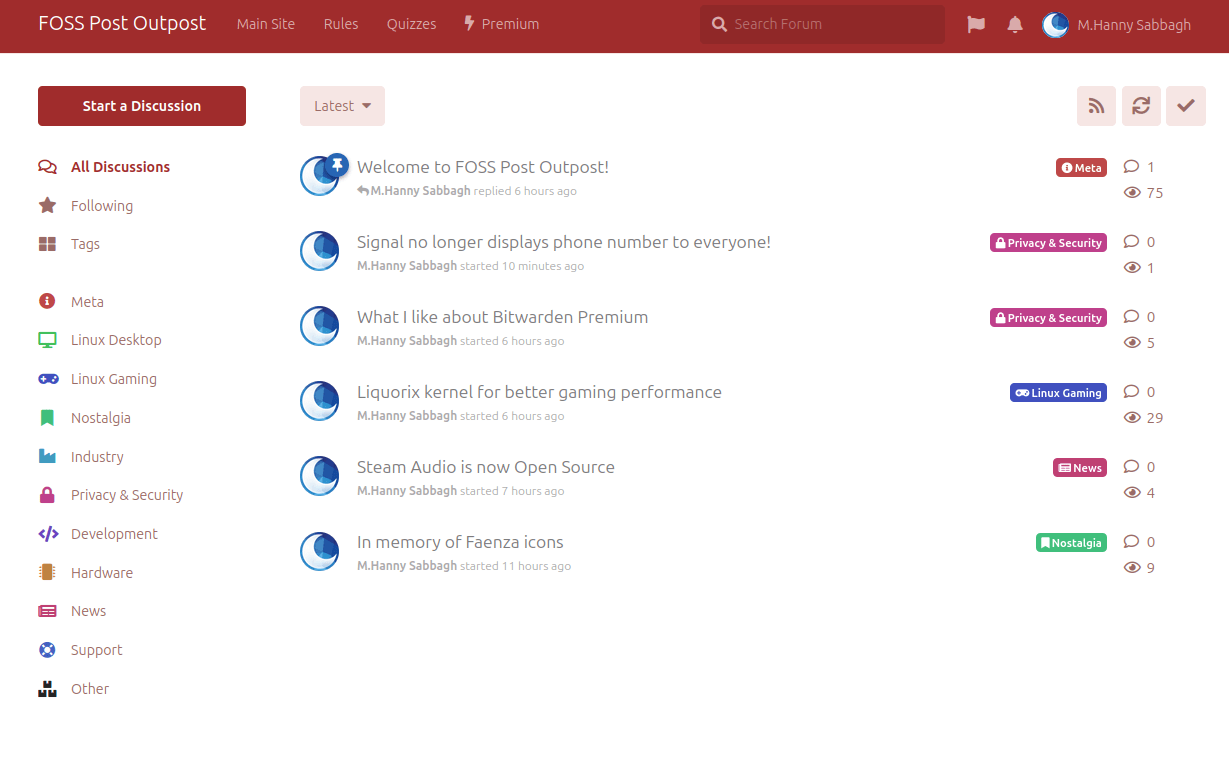There are many reasons why governments and other societal entities may elect to use Linux and other open source software instead of the proprietary alternatives, but arguably, minimizing software licensing costs is one of the most important reasons for this.
Today we’ll be showing the story of Eyupsultan municipality, which is located at the European side of Istanbul, Turkey. It is one the largest municipalities of the city, and it has been running a migration project to Linux and other open source software since 2015.
The story starts with the election of a new mayor in 2014, who administrated a study on migrating to Linux and other open source software to reduce the municipality’s costs. The IT department of Eyupsultan municipality prepared the study and figured out that it would be a good move, but to which software and Linux distribution should they migrate?
Table of Contents:
A Turkish Linux Distribution

Pardus Linux is a Debian-based Linux distribution which is suited for Turkish users. It is officially developed by “Ulakbim”, which is a government research institute subsidiary of the Scientific and Technological Research Council of Turkey (TÜBİTAK).
Pardus Linux has been under development since 2005, and comes in GNOME and Xfce versions that can be installed on users machines, just like any other Linux distribution. The latest version of Pardus is based on Debian 11, and can be downloaded from the official website.
Of course, the distribution also contains other open source software which are suitable for daily use, such as LibreOffice for documents editing, VLC for playing multimedia and GIMP for drawing or image processing. Any open source package available in Debian is also available in Pardus for installation.
Eyupsultan municipality opted for using Pardus Linux by default in this migration project for obvious reasons; mainly, the localization support for Turkish language and also being an official Linux distribution developed by a government agency of the Republic of Turkey.
Hüseyin Güç, a system administrator in the Eyupsultan municipality and also the migration project leader, has reached out to the FOSS Post to share the story of their success in switching to Pardus on the municipality-owned machines.
And the results are quite interesting.
Various Reasons to Replace Proprietary Software
Software licenses in Turkey are extremely expensive, even more than their US counterpart. For example, a Windows 10 Pro license currently costs 3900 TL, which is roughly $237. Also, a Microsoft Office license would cost 8700 TL, which is $536 in today’s current exchange rate.
In other words, in order to get an operating system license and an office suite license from Microsoft, for a single computer, you would need to pay around $770. Hüseyin also reports that Microsoft declined to provide a discount for the municipality in order to use its products, so if they wanted to buy them, they needed to pay in full.
Of course, there are other proprietary software that the municipality was using in their daily operations, which adds more burden. The municipality also migrated from Oracle databases to PostgreSQL, and from Microsoft Exchange Server (for email management) to Zimbra for further reductions.

The Turkish municipality didn’t like the fact that it needs to be paying that much money for just software licenses either. They wanted to be more independent of foreign technology companies in their infrastructure. As Hüseyin describes in his own words, on how they successfully persuaded the upper management of switching to open source software:
Although the main motivation was to reduce costs, the main reason for migration was to be independent. With the savings to be made from the license fees that have to be paid every year, the municipal services would be increased and diversified.
Another factor was hardware resources usage. Using a lightweight Linux distribution like Pardus will relief the management of the need to pay for newer computers every few years in order to remain capable of running the latest Windows/Office versions:
In addition, the Municipality administration would have the opportunity to use the equipment in their hands for many years without having to pay for the hardware infrastructure due to the increasing technical needs of the operating systems.
Overall, the top management of the municipality saw that it is hitting more than one goal at the same time:
Knowing that they can get rid of the inconvenience caused by getting into a technological addiction by using a certain product, thanks to free software, made the municipal administration very happy. In addition to these, the project to be built would set an example for other municipalities. With all these factors combined, the municipal administration agreed to replace the licensed operating system and software with free and open source software and the project was approved.
The Migration Project Starts And Continues
The municipality had 285 computers under its control, aside from other server components, and there were hundreds of people using them in the administration for different purposes. It is not an easy task to migrate to a totally different platform while also conducting day-to-day operations.
They started by an initial phase to educate the IT department staff on how to operate the open source alternatives in 2015, which lasted for two months. The municipality’s administration personnel were also trained on using the new software set for one month, but there were also smaller training periods at different times since 2015.
After that, the migration project started gradually on each computer. The IT department would be using a custom Pardus installation image, which auto-installs the system on the computers without human intervention in order to save manpower and time.
Hüseyin reports that since 2015, the municipality saved $1,098,300 in costs by migrating these 285 computers to Linux and other open source software. Which would be equal to around 17 million Turkish Lira in today’s exchange rate.
Possible Hurdles During Migration

The team said that the biggest issue during these years were the compatibility problems between Microsoft Office and LibreOffice, especially when it came to fonts rendering. Some municipality staff weren’t able to edit the .doc/docx files which are shared by other government agencies and branches.
Additionally, some custom scanner configurations were needed in order to properly be able to scan documents in the needed formats. Bardcode scanners also required a manual intervention.
But other than that, the migration project was quite successful.
Conclusion
The project does not end here. Hüseyin says that the municipality is still using:
- Microsoft Active Directory, which needs to be replaced with LDAP or Samba.
- Some CAD/CAM programs which do not currently run on Linux, perhaps to be replaced with other open source CAD software.
These replacements will take more time to be complete, of course, as they require further training and planning than before.
Thus, in this story we have seen what one municipality can achieve by its own efforts in migrating to Linux and other open source software.
Remember that this is just one municipality, out of tens in Istanbul, out of hundreds in the entire country, that has migrated to open source. So can you just imagine how large the savings would have been if the entire country migrated, for example?
This is what open source software enthusiasts have been talking about for decades, but sadly, very few have paid attention. Perhaps more governments and municipalities around the world should take this example seriously and start a similar migration project to Linux and open source software.
Hanny is a computer science & engineering graduate with a master degree, and an open source software developer. He has created a lot of open source programs over the years, and maintains separate online platforms for promoting open source in his local communities.
Hanny is the founder of FOSS Post.



